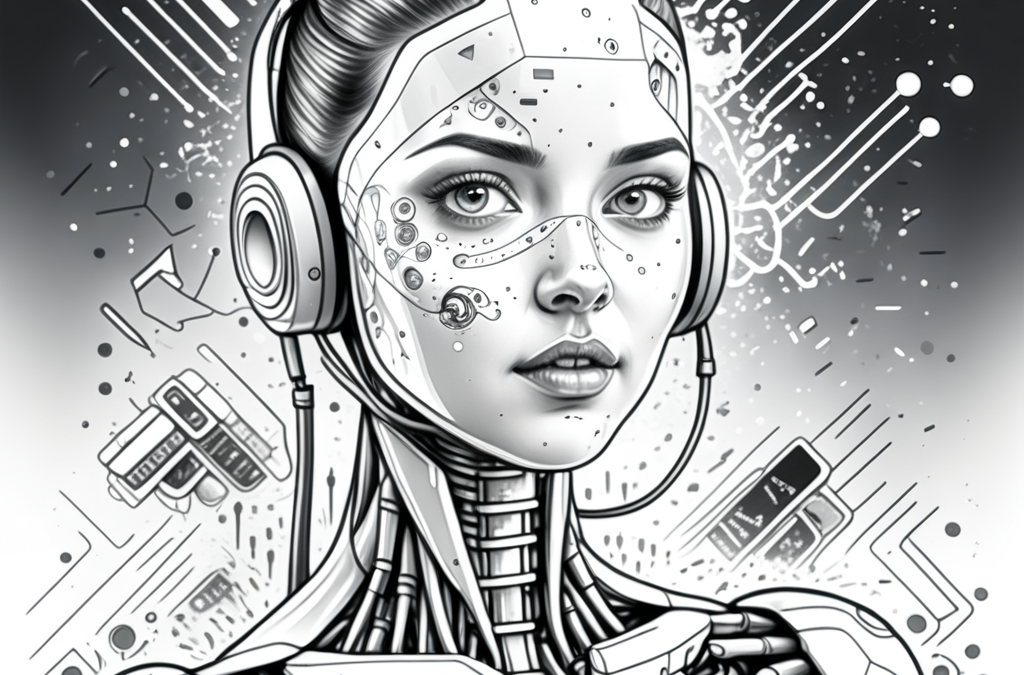Understanding the Role of AI in Quality Assurance
Quality assurance (QA) is a vital part of the tech industry, ensuring that software, apps, and websites function smoothly for users. Traditionally, QA relied on manual testing methods, which are often time-consuming and prone to human error. Enter artificial intelligence (AI), a transformative force that is changing how we approach quality assurance.
What Does AI Bring to Quality Assurance?
- Speed: AI can analyze vast amounts of data in seconds, running hundreds of tests simultaneously, which saves time and helps identify bugs before they evolve into bigger problems.
- Accuracy: Unlike humans, AI can maintain focus and is relentless in its pursuit of detecting even the smallest defects, ensuring high standards in product quality.
- Learning Capability: AI learns from past experiences, improving its testing techniques and adapting to new software updates or features over time.
The Benefits of AI in Quality Control
AI is revolutionizing quality control in several exciting ways:
- Cost Efficiency: AI increases speed and accuracy, which can lead to significant cost savings for companies.
- Enhanced Customer Satisfaction: By identifying problems early and improving overall quality, AI ensures that consumers receive reliable and high-performing products.
- Continuous Improvement: AI systems are always learning and evolving, making them increasingly effective in detecting issues and improving the quality of products.
AI-Driven Testing: The Future of Quality Assurance
AI tools are game-changers in the tech industry, fundamentally altering how we ensure software quality and user satisfaction. Notable tools include:
- Testim.io: Utilizes machine learning to create and maintain tests that adapt as the user interface of applications changes.
- Applitools: An advanced visual testing tool that detects even the tiniest visual glitches.
- Functionize: Translates natural language into test scripts, making it incredibly user-friendly for testers.
These tools analyze vast amounts of data, identify patterns, anticipate potential issues, and suggest additional test cases, acting as powerful allies for QA teams.
Exploring AI Applications in Quality Assurance
AI applications in quality assurance are transforming the tech landscape:
- Predictive Analytics: AI can sift through data to spot patterns indicating where problems are likely to arise, allowing testers to focus on the most challenging areas.
- Automated Testing: AI runs thousands of test scenarios tirelessly, catching details that might be missed by human testers.
- Defect Detection: Using sophisticated algorithms, AI can quickly identify issues in code and performance, acting as a meticulous detective.
The Impact of AI on Software Quality
AI’s influence on software quality is significant:
- Elevated Standards: AI sets new benchmarks for software quality, pushing developers to innovate continuously.
- Consistency and Reliability: AI tools can run tests repeatedly, ensuring software performs consistently across various devices and platforms.
- Rapid Adaptation: AI allows software to keep pace with evolving technology, ensuring compatibility across new devices.
Best Practices: Using AI for Automated Testing
To maximize the benefits of AI in automated testing, consider these best practices:
- Integrate AI Thoughtfully: Enhance existing testing frameworks by identifying areas where AI can add value.
- Train AI Models: Provide high-quality datasets for better AI learning and effectiveness.
- Maintain Human Oversight: Monitor AI activities to catch any overlooked details, ensuring a balance between automation and human expertise.
The Future of AI in Quality Assurance
The future of AI in quality assurance promises remarkable advancements. Expect:
- Self-Healing Systems: AI that autonomously detects and fixes bugs without human input.
- Machine and Deep Learning: Enhanced capabilities for predicting issues and understanding context, leading to even better quality assurance processes.
As these technologies evolve, they will not replace human testers but will instead take on repetitive tasks, allowing humans to focus on creative problem-solving.
Conclusion: Embracing the AI Revolution in Quality Assurance
The advent of AI in quality assurance signifies a transformative moment in technology. With its ability to speed up processes, enhance accuracy, and anticipate potential issues, AI is becoming an essential part of software development.
This revolution requires a mindset shift, encouraging innovation and continuous learning. Young tech enthusiasts have a unique opportunity to lead this change. By engaging with AI technologies, you can help shape the future of quality assurance, ensuring that software is better and processes are more efficient. Dive into the world of AI-powered quality assurance and prepare to leave your mark in this exciting field!


